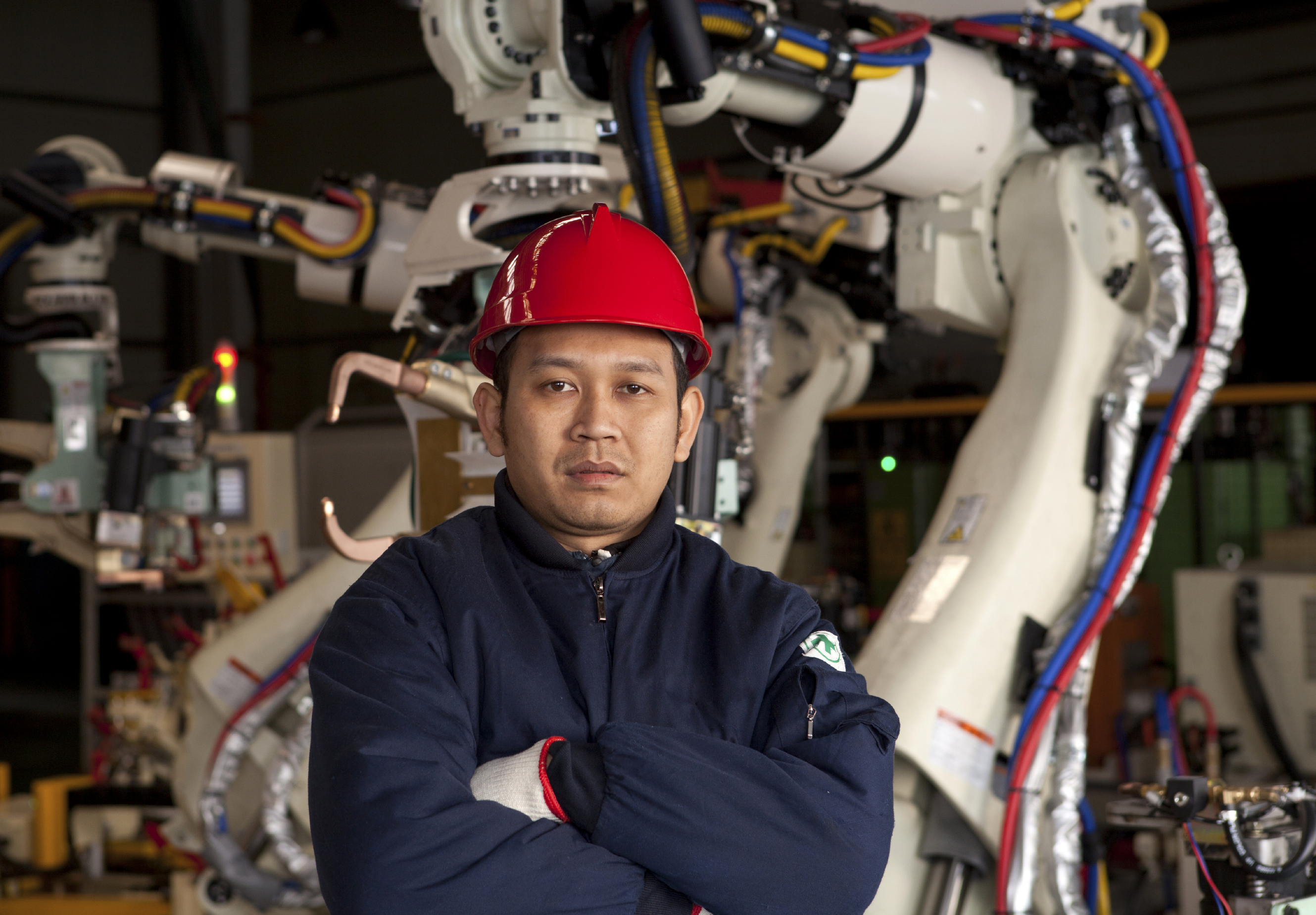How workers can retrain for careers in an automated world


Robots -- they're the economic threat du jour.
In the past several years, we've seen a variety of numbers describing just how unemployed the human race will be when automation creeps through the workforce like a bad frost.
But, we're not there yet.
Whether the robots are going to put us all out of work is not a yes or no situation. Loosely, the lay of the land is something like this: Some people will lose jobs. Some people will retrain, or be retrained by their company. Some will work in jobs that did not exist before automation.
So, what to do? If anything at all?
The lesson to glean might just be the importance of a strong and always-expanding skillset.
"It's definitely true that we have always adapted by acquiring new skills that are complementary to the arrival of new technologies," said Oxford economist Carl Benedikt Frey.
Frey, as well as Michael Osborne of the Oxford Martin School co-authored the oft-cited 2013 study called, The Future of Employment: How susceptible are jobs to computerisation? The study concluded that 47% of US employment is at risk of computerization over the course of an unspecified amount of time.
Featured is a graph that shows the jobs least likely to be automated are in management, business and financial, and computers, engineering, and science.
Frey told ZDNet that while there's debate as to whether automation will most heavily affect low skills jobs, or also affect knowledge work, generally they found that those with more education, with PhDs or professional degrees particularly in STEM fields, are least susceptible to computerization.
It's impossible to write a prescription for the retraining needs of such a wide swath of jobs, but this might be yet another incentive to turn to tech.
"Students and those seeking to switch industries, whether for fear of automation or otherwise, should certainly look into technology. The tech industry continues to create plentiful opportunities for job seekers in a variety of sectors and roles, which would be a valuable career choice for anyone in the job market," Robert Half's senior executive director John Reed said.
For those already working in the technology industry, Tech Pro Research recently conducted a survey called The Future of IT Jobs: How to Beat the Machines. Already some indicators are emerging as to what people are experiencing and expecting as far as automation in their jobs.
Thirty-six percent of respondents said that "automation caused people to be moved into equal or higher-level positions." Fifty-six percent said they have training programs to help employees advance their knowledge in response to automation, and 78 percent of those programs are done in-house. Another 62 percent of respondents are using self-study to keep up their skills in response to automation.
As hinted at, retraining can take all sorts of forms.
For those not already working in tech, Reed advised this: "A fondness for technology and the willingness to keep up in an environment that is constantly changing is certainly a key factor [that] anyone looking to make the move into technology should consider."
It's important to do research on the job market, look at salary trends by geographic location, and think about possibilities for growth over time in specific roles.
"Just like any career - you want ensure that once you've invested in training, you'll have a career path that offers advancement," Reed said.
And that's important, because some areas are healthier than others.
The TPR survey also found that the three departments most likely to experience automation are system administration, data center, and help desk. Also, those departments are the top three reporting the loss of jobs as a result of automation.
Retraining to stay in tech could be somewhat easier. Those in 'at risk' jobs might consider getting a jump on expanding their skillset before something dramatic happens. Best case: a smoother transition. Worst case: a new set of marketable skills at ready access.
Though, Frey said, just because people become educated, doesn't necessarily mean new jobs are being created for them to fill.
Some of this burden falls on companies and their hiring policies, he said.
"You need to invest, you need to create new opportunities, and I think such investments will need to accommodate education to create new future jobs for people coming up in the labor market to be employed," Frey said.
Though, it is worth noting the recent push from the The White House projects there will be 1 million open jobs in information technology by 2020.
So if that's a desirable route, it's a matter of deciding on a type of tech job and picking a course of action that could include online courses, coding camps, or other accelerated technology programs, Reed said.
As far as retraining within a company, J.P. Gownder, vice president and principal analyst with Forrester Research, gave an example of Rethink Robotics' Baxter robot. It's an assembly line robot, but instead of being programmed by computer scientists, the workers who were doing the manual task take the robot's arm and perform that task in order to train the robot.
Gownder talked about the idea of job transformation.
"Robots aren't so much stealing our jobs as they are becoming a part of our work environment," he said, "and so no matter what your skill level is, there may be opportunities for you to retrain into something that works with the robots rather than being replaced by the robots."
That's been the case at business processing and tech firm Xchanging. They introduced robotic process automation (RPA) in 2014. As an outsourcing provider, they were looking to find ways to be more innovative, said Paul Donaldson, Xchanging's head of robotics.
"The nature of the game for BPOs [business process outsourcing] is to try and continually innovate and find more benefits for our customer base, financial benefits or improvements in turnaround time or quality, or all these kinds of niches," he said.
They started off in their insurance offering, processing work for Lloyd's (the global specialty insurance market in London).
In short, Xchanging has taken a lot of work that folks weren't keen on doing anyway (like closing static insurance claims) moved some of those people into more client-facing roles, and some of them into roles actually dealing with the RPAs, and despite the fact they've got 27 robots running, no one's lost their job.
Instead, they're learning to work with these bits of software -- they've even named them. One RPA went live around Remembrance Day, so they named it Poppy, and now even Donaldson realizes he refers to Poppy like a person.
Another possibility is that automation could create jobs that didn't exist before. Gownder gave an example of the parking garage at the airport in Dusseldorf, Germany. They introduced a robot valet, basically, that parks cars by lifting them up and putting them into spots. Post automation, the garage can accommodate about 40% more cars. And while previously there was no one working in that garage, there now has to be a trained technician on staff to maintain, repair, and oversee the system.
Going back to the Xchanging example, Donaldson's job is one that wouldn't exist without the move to automation. Similarly, each robot has a handler of sorts who organizes the robot's workload, as well as trains it for any new tasks.
"If you looked at the next 10 years, the likelihood is that yes, there will be some job losses, but there will also be opportunities," Gownder said.